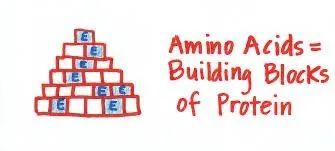News Articles
Explore Our Blog: Insights and Inspiration for Your Empowering Journey

The Consequence of Muscle Loss When Dieting: Why It Matters
When embarking on a weight loss journey, many people focus solely on shedding pounds without considering the composition of that weight loss. One crucial aspect often overlooked is the potential loss of muscle mass.
Here's why it matters:
1. Metabolic Rate Decline: Muscle tissue is metabolically active, meaning it burns calories even at rest. When you lose muscle mass, your metabolic rate decreases, making it harder to maintain weight loss and easier to regain weight once the diet is over.
2. Decreased Strength and Functionality: Muscles are responsible for movement and strength. Loss of muscle mass can lead to decreased physical performance, reduced strength, and compromised functional abilities, ultimately impacting your quality of life.
3. Increased Risk of Injury: Weak muscles are more prone to injury, whether during exercise or daily activities. This can hinder your ability to exercise effectively, further exacerbating the cycle of muscle loss and weight regain.
4. Impacts on Body Composition: Losing muscle mass while dieting can result in a less desirable body composition, with a higher percentage of body fat relative to lean muscle mass. This can lead to a "skinny fat" appearance, where weight loss is achieved but muscle definition and tone are lacking.
5. Long-Term Health Consequences: Maintaining muscle mass is essential for overall health and longevity. Muscle loss is associated with an increased risk of chronic conditions such as insulin resistance, diabetes, and osteoporosis, among others.
To lower the risk of muscle loss while dieting, prioritize adequate protein intake, including the use of essential amino acids, to support muscle repair. Including resistance training exercises into your routine will also help preserve muscle mass. . Remember, sustainable weight loss is not just about the numbers on the scale but promoting overall health and vitality.
Office: The Villages, FL, 32163
Call (765) 412-2090
Email: [email protected]
Site: https://LivingAbundantlywithLorraine.com

